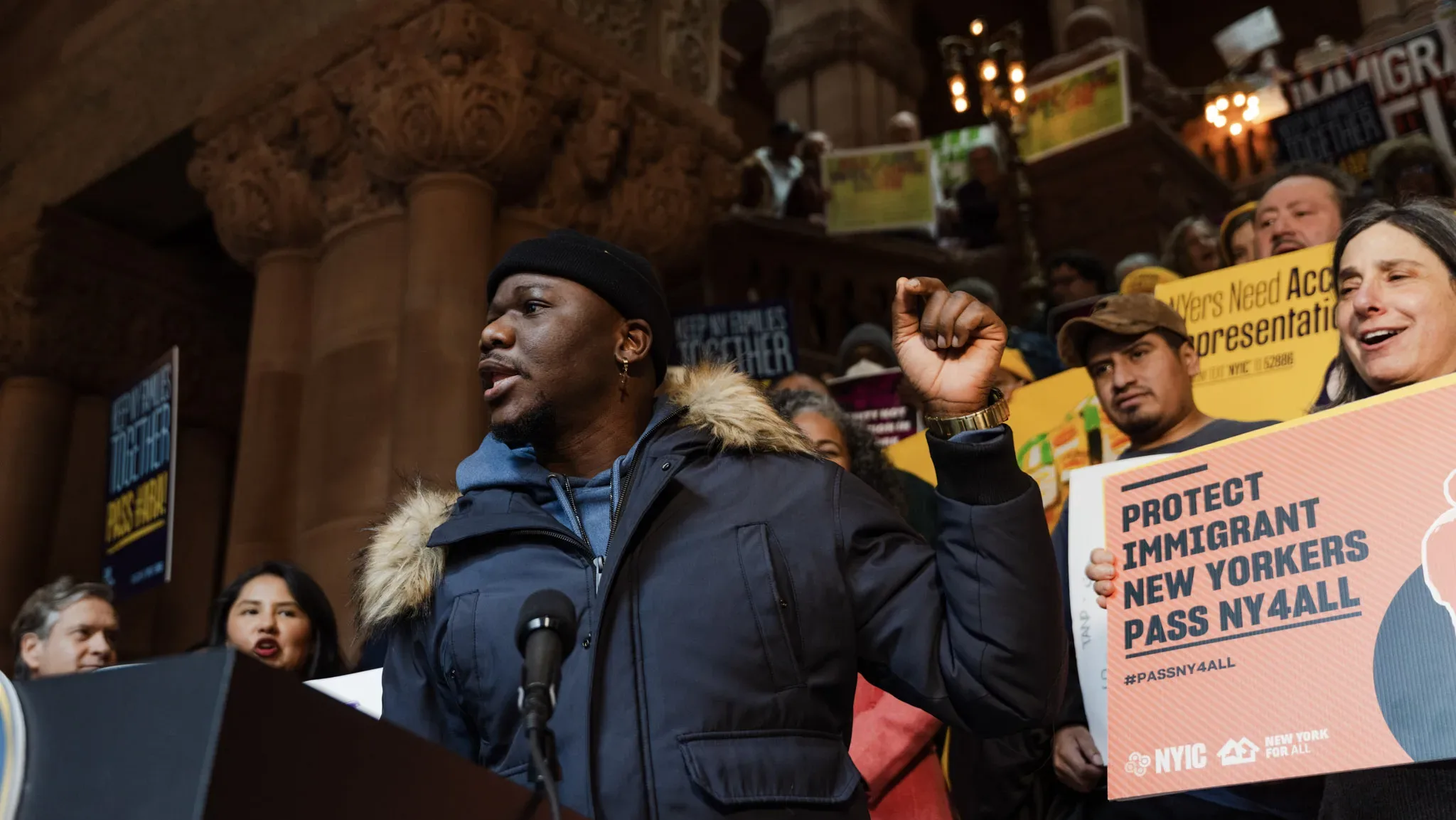This summary about the 10 year DACA anniversary was featured in Documented’s Early Arrival newsletter. You can subscribe to receive it in your inbox three times per week here.
Ten years ago today, former President Obama announced the Deferred Action for Childhood Arrivals program. Today, DACA’s fate is unknown.
The uncertainty of the program has left DACA recipients, known as Dreamers, in a state of anxiety about their lives in the United States, which they know as home.
For the 10 year anniversary of DACA, Documented’s Community Correspondent Rommel H. Ojeda writes that while the program has improved the lives of more than 690,000 people who came into the U.S. as children, the volatility of it has also impacted their mental health as they anxiously wait for a permanent solution to their immigration status in the U.S.
Results from our survey on DACA’s impact on mental health: Ojeda spent the past month distributing a survey. He received nearly 100 responses and interviewed some of those who replied.
Over 90% of the 89 active DACA recipients surveyed said their mental health has been impacted by the program, with 33% reporting that they had taken therapy sessions.
“It is as if we are hanging by a thread,” Brian Aguilar Avila, a 27-year-old Neural Engineering Laboratory Administrator at City College told Ojeda.
“One of the things that surprised me,” Ojeda told me, “is the fact that almost everyone that I reached out to wanted to be on the record. And one reason is because they feel that people should know they’re stuck in a situation that needs a permanent solution in terms of immigration status.”
A flawed system: Eva Santos Veloz, 32, an organizer with United We Dream and a Dreamer, said the two-year time frame of the program has made her lose three jobs because of renewal processing delays.
Under the program, DACA recipients can only travel for humanitarian, educational or work related reasons with Advance Parole. And the process is not smooth: Some of them reported challenges re-entering the country freely.
“The program could have been structured so that Advance Parole was automatic rather than discretionary [and] it could be done by administrative guidance,” said Allan Wernick, an Early Arrival reader who is also Director and Attorney-in-Charge at CUNY Citizenship Now, an initiative which has helped more than 2000 Dreamers with applications and renewals in New York.
On July 6th, the 5th Circuit Court of Appeals is set to consider Texas’ lawsuit challenging DACA. Wernick told Ojeda the only way for the program to be protected would be through legislation.
Read the full story about the 10 year anniversary of DACA exclusively on Documented.
STORIES WE ARE FOLLOWING
New York
$5 million allocated for community interpretation bank for African, Asian, Latin American limited diffusion languages: New York City Council member Julie Won announced on Monday that the fund will help advance language access to immigrant New Yorkers. — Read more
Mutual aid projects have been lifelines for Chinatown’s elderly immigrant residents: Community aid projects have helped elderly residents as language barriers and other factors precluded them from accessing social services. — bon appétit
City Council member calls to launch interpreter bank: With around 200 to 800 languages spoken in the metro area, Shahana Hanif says launching an interpreter bank will help expand access to life-saving city information and services to immigrants. — Daily News (Opinion)
Around the U.S.
Diversity visa applicants no longer need passport to enter lottery: The Department of State officially removed the passport requirement for applying for a diversity visa. It took effect June 10. — Read more on the Federal Register
Haitian migrants waiting in Tijuana experience discrimination, even death: President Biden’s promise to take more Haitian refugees means nothing for those who still wait in Mexico and face violent attacks, rejection by hospitals, and death. — Los Angeles Times
Supreme Court rules immigrants can be detained indefinitely without bond hearings: The 8 – 1 ruling also states federal judges cannot order the government to release immigrants who have been detained without hearings on a class-wide basis. — Reuters
Advocates and lawyers air views in Supreme Court’s 6-3 decision in Garland v. Gonzalez: The decision strips every court but the Supreme Court of the ability to restrain immigration enforcement laws. — Slate (Opinion)
Washington D.C.
Biden creates panel to study potential National Museum of Asian Pacific American History and Culture: The legislation will enable a commission to examine how to make the museum a reality and whether to make it part of the Smithsonian Institution, Biden said. — CNN
Afghan refugees forced to associate with the Taliban now have a chance at asylum or visas: The Biden administration loosened a terrorism-related designation that will let some afghan refugees seek asylum or visas after a vetting process. — L.A. Times (Paywall)














